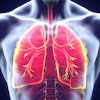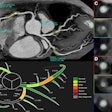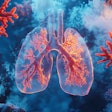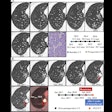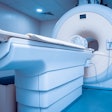Dear CT Insider,
Lung cancer screening with CT is making inroads into patient care as long-term smokers make their way to screening programs. But new research shows that smokers aren't the only ones at risk of a lung cancer diagnosis.
There are some other well-known risk factors for lung cancer, including air pollution, tuberculosis, a family history of the disease, and even secondhand smoke. But which risk factors matter? That was the subject of a screening study of more than 4,000 high-risk nonsmokers in Taiwan. You'll find their surprising results in this issue's Insider Exclusive, brought to you as a CT Insider subscriber before our regular members can access it.
Another study of lung cancer found that growth rates of suspicious lung nodules vary significantly by sex. In fact, one gender had far more fast-growing lesions than the other, with shorter volume doubling times and more solid nodules versus more part-solid nodules for the other sex. Find out who's more at risk by clicking here.
Also, a recent Canadian study created a risk prediction model for lung cancer based on nodule characteristics. It worked well on the Canadian population for which it was designed, but researchers presenting at RSNA 2016 weren't sure it would still work when applied to data from the National Lung Screening Trial, which examined a very different cohort of screening subjects. But actually the Vancouver Lung Cancer Risk Prediction Model did work in the NLST, almost as if it had been designed for it. You'll find the rest of the story here.
In head CT, practices often suffer from a delay in communicating critical results, potentially exposing patients to missed findings. To address the problem, investigators developed an automated artificial intelligence screening tool utilizing deep learning, validating it on 500 noncontrast head scans. After being trained, the model produced excellent accuracy during validation for determining which exams contained emergent findings. Learn more about the study here.
Another machine-learning tour de force occurred in cardiac imaging, where researchers from Germany and the U.S. put the technology up against a well-validated fractional flow reserve CT technique. If you were to guess that machine learning won the day, you'd be right. Get the details here.
Speaking of well-validated techniques, CT colonography (CTC) advocates were left scratching their heads last month after the U.S. Centers for Medicare and Medicaid Services abruptly announced it was declining to revisit the national coverage determination for CTC that it had rejected in 2009 and had been asked to reconsider in the wake of still more favorable evidence. Seven years later, after researchers had produced study after study that underscored the safety, efficacy, and cost-effectiveness of the technique -- even garnering an "A" rating from the U.S. Preventive Services Task Force -- CMS said no again.
But if the events of 2016 can seem a bit depressing, radiologists can at least take solace in the recent finding that an occasional drink won't harm the coronary arteries. That said, we wish you health and happiness in 2017, and we invite you to scroll through the links below for much more news from the world of CT -- here in your CT Community.


